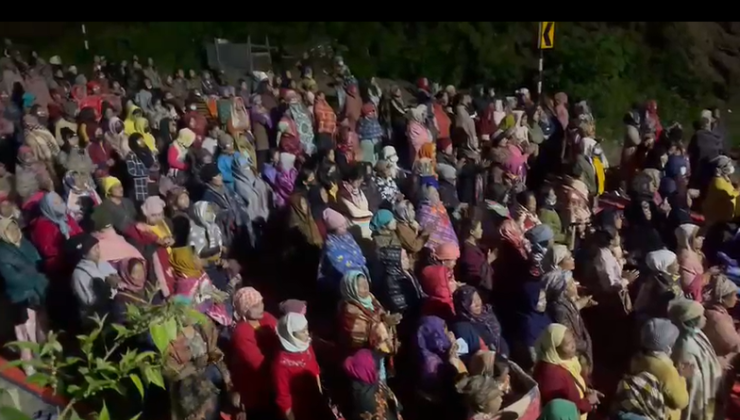
Rashtriya Swayamsevak Sangh (RSS) chief Mohan Bhagwat issued a passionate plea for restoring peace and harmony in the violence-wracked northeastern state of Manipur, declaring it must be treated as the nation's top priority. His comments came during a speech in Nagpur that was heavily critical of the divisive rhetoric and disinformation campaigns that had marred the recent general election campaign across the political spectrum.
"Manipur has been waiting for peace for a year," Bhagwat stated, marking his first public comments on the northeastern state's turmoil since the conflict began. He called for an urgent cessation of violence, emphasising its priority status in the national agenda. “We have made strides in many fields like economy, defence strategy, sports, culture, technology etc., but that does not mean that we have overcome all the challenges,” he added, highlighting the persistent issues that continue to afflict the country.
Addressing the newly elected government, Bhagwat advised a reconsideration of their approach to both electioneering and governance. "Election is a process of building consensus. Parliament has two sides so that both aspects of any question can be considered. Every issue has two sides. If one side is addressed by one party, the Opposition party should address the other dimension, so that we reach the right decision," he said, emphasising the importance of a robust Opposition. His remarks thinly criticised the BJP's earlier "Congress-Mukt Bharat" (Congress-free India) rhetoric, noting that a diverse political landscape is essential for balanced decision-making.
The 2024 elections saw the Congress party increased its seat count from 52 in 2019 to 99, while the BJP's tally dropped to 240, below the majority mark of 272. This new distribution has given the Opposition 234 seats in the Lok Sabha, indicating a more competitive political environment.
"The whys and wherefores of the mandate, which comes once every five years, does not concern the Sangh," Bhagwat stated. He explained that the RSS focuses on shaping public opinion rather than analysing election outcomes. "The Sangh works for refining public opinion in every election, did it this time also but does not get entangled in the analysis of the outcome… Why do people get elected? To go to Parliament, evolve a consensus on various issues. Our tradition is of evolving consensus… This is a competition, not war," he remarked, stressing the need for constructive political discourse.
Bhagwat also expressed disapproval of the negative tactics employed during the election campaigns. "The way things have happened, the way both sides have attacked below the belt, completely ignored the impact of campaign strategies that would lead to divisions, increasing social and mental fault-lines, and unnecessarily drew organisations like the RSS into the same. Using technology, falsehood was spread, absolute falsehood," he said, criticising the spread of misinformation and divisive rhetoric.
The situation in Manipur remains dismal, with violence between the Meitei and Kuki communities resulting in over 200 deaths and thousands being displaced. Manipur's population is divided primarily between the Meiteis, who live in the Imphal Valley, and the hill-dwelling Nagas and Kukis. Recent violent incidents, including an ambush on Chief Minister N Biren Singh's security convoy and the torching of properties in Jiribam, have worsened tensions.
"The state remained peaceful for the last 10 years, but suddenly, gun culture has increased in the state again. It is important to resolve the conflict on priority," Bhagwat urged.
The influential Hindutva ideologue's intervention could carry significant weight, given the RSS's pre-eminent position in the country's socio-political sphere and its ideological affiliation with the ruling Bharatiya Janata Party (BJP).
Last June, almost six weeks after the violence first erupted in Manipur, the RSS had appealed for peace while expressing solidarity with the displaced people. It had called for addressing the "sense of insecurity" among the Meiteis and the "genuine concerns" of the Kuki community simultaneously to resolve the crisis. However, that appeal appears to have gone unheeded amid a continuing spiral of tit-for-tat attacks between groups from both sides.




